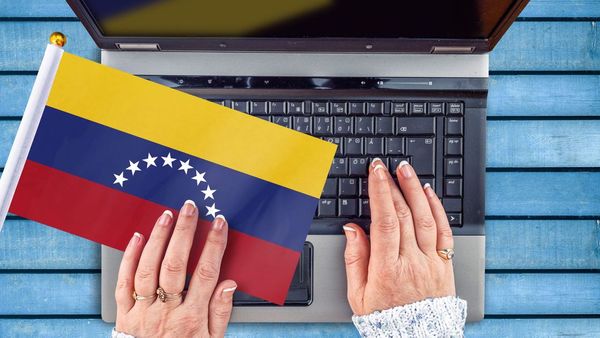The federal government is expected to outline its plans for implementing the Uluru Statement from the Heart during a meeting with the state and territory Indigenous Affairs ministers today.
It is federal minister Linda Burney's first meeting with her state and territory counterparts since the Prime Minister's historic announcement of a proposed referendum question at the Garma festival last month.
"I want to get a clear understanding from each state and territory with where they're at with the treaty and truth-telling processes, and also talk about the referendum and hopefully get an agreement of in-principle support towards a constitutionally enshrined Voice in the Australian referendum," Ms Burney said.
Support from the state and territory governments will be key if the government hopes to get a majority yes vote from the Australian public on changing the constitution to enshrine an Indigenous Voice to Parliament.
The government has indicated it intends to use the Indigenous Voice co-design report, developed by Marcia Langton and Tom Calma, and a parliamentary report written by co-chairs Patrick Dodson now-Shadow Attorney-General Julian Leeser as blueprints for the Voice model.
There has already been pushback on the suggested models, with some Indigenous communities calling for nation-based representation rather than the state-based model proposed in the report.
Ms Burney said the government had not ruled that out as a possibility.
"What the government is doing is talking and consulting as widely as possible. Nothing is in, nothing is out," she said.
"We want to hear what people's views are and then we'll make an informed judgement based on those views."
The government is still yet to set a time frame for the referendum, however it is widely anticipated to be held by the end of 2023.
"There may be those discussions, but the federal government doesn't have any timeline in mind at the moment, going down the track, obviously, we'll think about those things," Ms Burney said.
"What I'm really looking for is bipartisanship on [a] Voice to the parliament enshrined in the constitution."
Trailblazing states keen to work with Commonwealth
The Voice is one pillar of the Uluru Statement, which also calls for a truth-telling and treaty processes to be established through a Makarrata commission.
The states and territories have already begun work on individual processes, and Ms Burney said the commonwealth wanted to collaborate with them.
"The key issue is to make sure that we work hand in glove with state and territory processes, and make sure that what we're doing federally fits in with what states and territories are doing and vice versa," Ms Burney said.
This week. the Victorian parliament passed legislation through the upper house to establish a treaty authority that will oversee the brokering of a treaty between Victorian Indigenous people and the state government from next year.
State Minister for Treaty and First Peoples Gabrielle Williams said it was a hard-fought win.
"Here in Victoria, we see ourselves as the nation leaders in this space, certainly the trailblazers, and we think that there was a lot to learn from the process and the journey that we've been undertaking here now for a number of years," she said.
"We'll be keen to share with [the Commonwealth] the journey that we've been on so far with the establishment of the Yoo-rrook Justice Commission, the establishment of the First Peoples Assembly as well."
In Queensland, a truth-telling inquiry has been announced, with the government setting a three-year time frame for the process.
State minister Craig Crawford said he wanted to see all his state and territory colleagues outline similar plans.
"I do know of some states that in these conversations previously have not had any intention or plans of moving down a treaty or a Voice or even a truth-telling component. So hopefully, every state is bringing something to the table," he said.
Mr Crawford said he thought the state truth-telling inquiry could help progress conversations on the national referendum.
"I'd like to think that it will start to generate some of the household conversations as people see things on the news and the paper, on social media, and hear stories from their backyard that they may never have known," he said.
"That might start to sway a few ideas or get a few kitchen table conversations happening in families. So I think the timing of the referendum is really, really critical."







